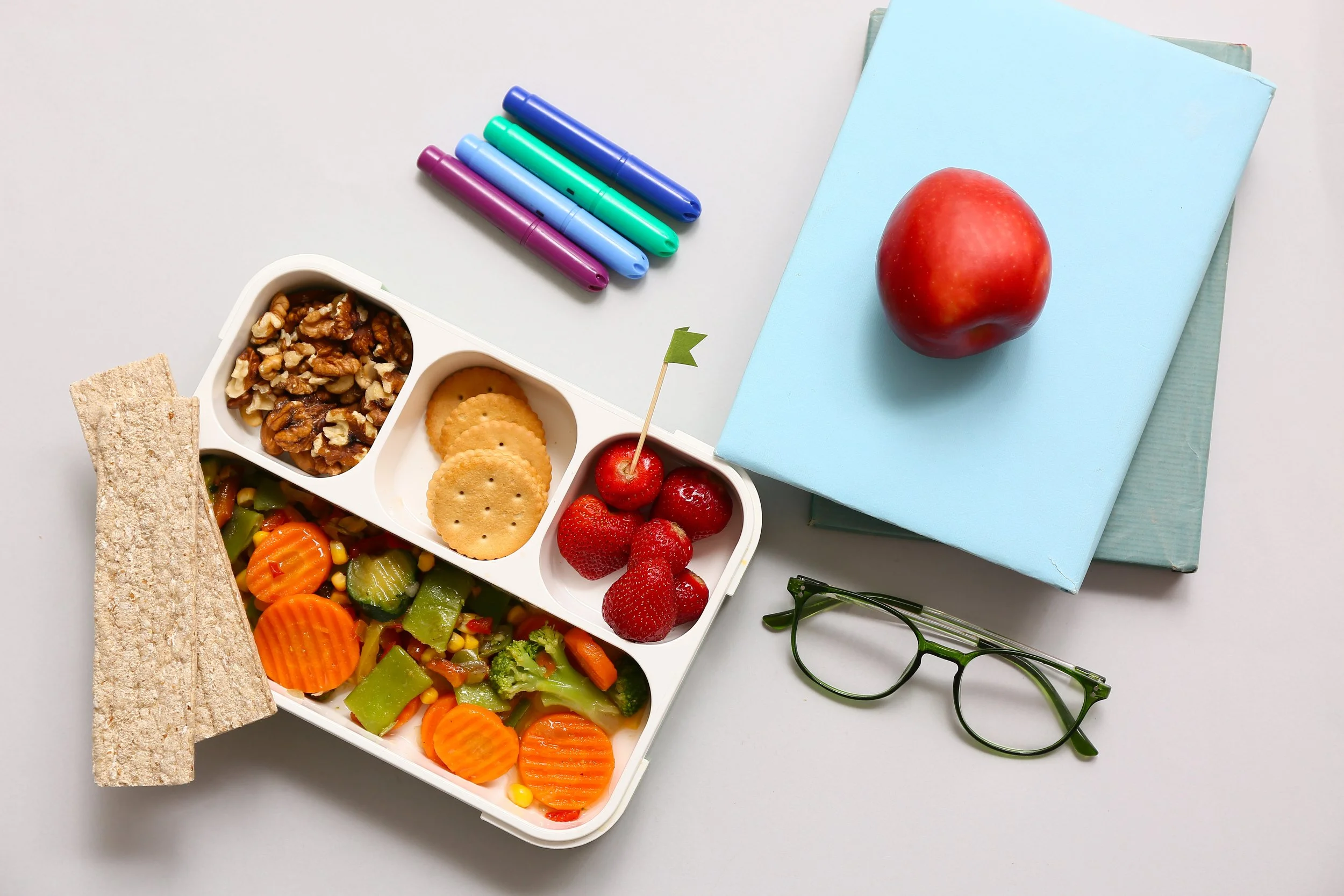Fuel Your Brain, Boost Your Grades: The Study-Smart Guide to Exam Success
With exam season nearing - if you’re feeling the pressure, you’re not alone!
Whether you’re reviewing notes or solving practice problems, there’s a secret weapon that can give you a serious edge – fuelling your brain with the right foods!
Here’s how you can use what’s in the dining hall to boost your study game.
You will find six food challenges throughout the blog, how many can you complete?
Choose Brain Boosting foods!
Choose the right foods that will nourish your brain and keep you sharp. Here are some nutrients that your brain loves, how they work, and where you can find them in the hall.
Glucose
How does it work? Your brain solely runs on glucose for energy so it’s super important that you’re getting enough to power your mind throughout the day. Glucose is found in a variety of foods but aim for high fibre foods that release glucose slowly into the brain to stay focused for longer, and avoid those nasty sugar crashes.
Where to find it?
You’ll find a huge selection throughout your meals such as wholegrain bread, Weetbix, or porridge.
Challenge #1: Switch your usual white toast bread to wholegrain bread!
Fruits make a great study snack. You’ll find a selection of fresh fruit every day at breakfast, afternoon tea, and dessert.
Challenge #2: Add a fresh fruit like banana to your usual afternoon tea options.
Did you know banana also contains vitamin B6 that can boost your memory?
Healthy Fats
How does it work? Your brain is made up of around 60% fat so giving it the right fats through what you eat will support its structure. Unsaturated fats such as Omega-3’s keep your brain healthy, and can improve memory and learning by strengthening the messages sent between brain cells.
Where to find it?
Fish is one of the best sources of Omega 3!
Challenge #3: Try making yourself a tuna salad sandwich for lunch.
Nuts and seeds are small but mighty additions for an easy boost.
Challenge #4: Make yourself peanut butter to your toast, or munch on scroggin mix at morning tea.
Protein
How does it work? Proteins break down into amino acids, which are used to create neurotransmitters—chemicals that help brain cells communicate. Key neurotransmitters include dopamine - which improves focus and motivation, and serotonin - which supports mood and reduces stress.
Where to find it?
Your menu is packed full of protein. Make sure you have protein at each meal such as chicken, fish, eggs, beef, and lamb.
Challenge #5: Can you boost your brain by adding another protein from the salad bar at dinner? This can be as easy as adding a sprinkle of cheese to your BYO salad!
Antioxidants
How does it work? Antioxidants are like shields for your brain, protecting and fighting off "oxidative stress"—a kind of wear and tear damage that can make it harder to concentrate, remember, or feel energized.
Where to find it?
Vegetables! There are heaps of vegetables to choose from at lunch and dinner. Aim to fill half your plate with varieties from both the salad selections and hot selections daily.
Challenge #6: How colourful can you make your veges at lunch and dinner?
Fruits! Readily available at breakfast, afternoon tea, and dessert - A bonus is that they are a great source of glucose too!
Other Tips for an extra boost!
Hydrate like a pro - Water is one of the simplest but most powerful tools for focus and memory.
Quick tip: Aim for at least 8 glass a day. Plain water is best but all fluids count - whether its water, plain milk or cups of tea! Try to minimise sugary drinks like fizzies or juice - opt for sugar-free options or dilute juices to reduce the sugar content.
Give your brain a break - It can be tempting to power through even when tired. However, regular breaks between studying actually helps us retain information better.
Study hack: Set a schedule for a 5-10 minute break every hour. For the best brain break try to stay away from your phone and get your body moving.
Prioritise sleep - When you sleep, your brain organizes and stores all the information you learned during the day.
Can’t sleep? try a small wind down routine before bed. Something as simple as listening to soothing music before bed can give your brain the signal that it’s time to relax.
Get moving - Even a few minutes of movement can improve the blood flow to your brain.
Move challenge: Try a putting on a favourite song, then stretch and move for a few minutes. It’s a fun way to give you an energy boost between study breaks.
You’ve got this!
Try these small but powerful habits to help fuel your brain and level up your study game. Let’s do this!

